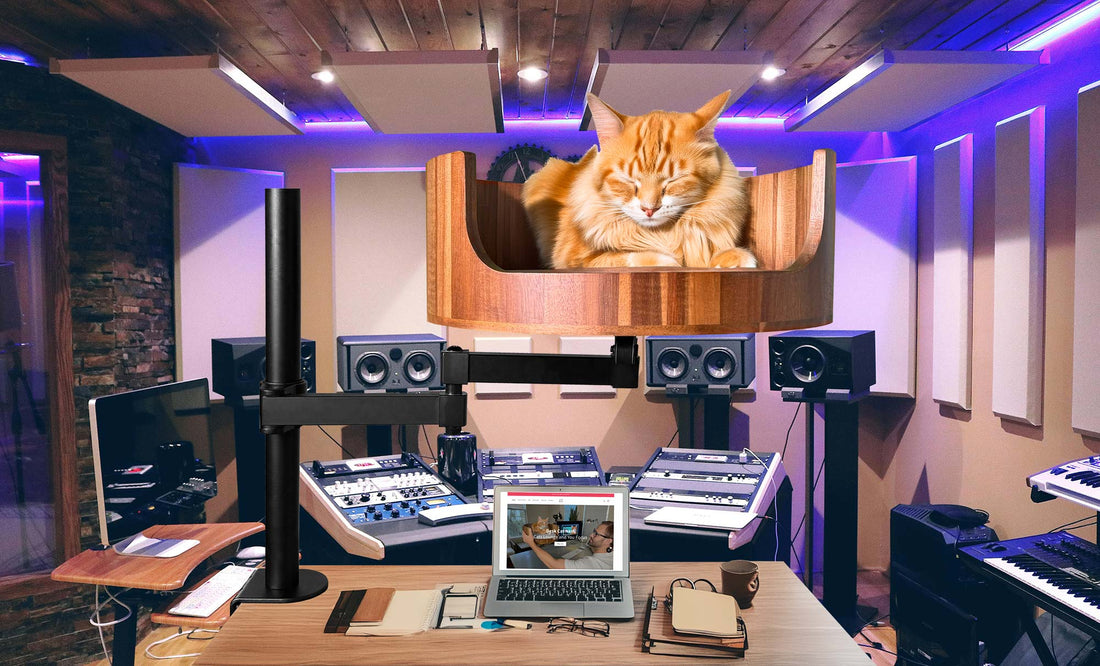
Why Does My Cat Vomit After Eating Dry Food?
Share
If you have ever found yourself wondering why your cat vomits after eating dry food, you are not alone. This common issue can be worrying for pet owners, but there are several reasons why it may occur. In this article, we will explore the potential causes of this behavior and offer some tips for preventing it.
One possible reason for your cat vomiting after eating dry food could be a sensitivity or allergy to certain ingredients in the food. Some cats have digestive systems that are more sensitive than others, and they may struggle to tolerate certain types of food. Another potential cause could be that your cat is eating too quickly, leading to regurgitation shortly after a meal. By understanding the reasons behind this behavior, you can take steps to address the issue and ensure that your feline friend is happy and healthy.
- Some cats may vomit after eating dry food due to various reasons.
- Cats may vomit if they eat too quickly, leading to indigestion.
- Vomiting can also be a sign of food intolerance or allergies in cats.
- Providing smaller, more frequent meals and using slow feeder bowls can help prevent vomiting.
- If vomiting persists or is accompanied by other symptoms, a visit to the vet is recommended to rule out any underlying medical issues.
Common Causes of Vomiting in Cats
Some common causes of vomiting in cats after eating dry food may include food intolerance or allergies, eating too quickly, hairballs, underlying medical conditions such as pancreatitis or kidney disease, or even stress and anxiety. It's important to observe your cat's habits and behavior to determine the root cause of their vomiting.
Dry Food and Digestive Issues in Cats
Dry food can sometimes be harder for cats to digest compared to wet food, as it requires more water to break down properly. If your cat is not drinking enough water or is prone to dehydration, they may experience digestive issues such as vomiting after eating dry food. It's essential to ensure your cat has access to fresh water at all times and consider incorporating wet food into their diet as well.
Importance of Proper Feeding Habits
It's crucial to pay attention to your cat's feeding habits to prevent vomiting episodes. Avoid overfeeding your cat or allowing them to eat too quickly, as this can lead to vomiting. Consider using puzzle feeders or slow feeders to encourage slower eating habits and prevent digestive issues. Additionally, make sure to provide a balanced diet and consult with your veterinarian to determine the best feeding plan for your cat.
When to Consult a Veterinarian
If your cat is consistently vomiting after eating dry food, it's important to consult with a veterinarian to rule out any underlying medical conditions. Your vet may recommend dietary changes, medication, or further testing to address the issue. Keep track of your cat's vomiting episodes, including frequency, time of day, and any other accompanying symptoms, to provide necessary information to your veterinarian for an accurate diagnosis and treatment plan.
Desk Cat Nest FAQ
Why does my cat vomit after eating dry food?
There are several reasons why your cat may be vomiting after eating dry food. It could be due to food intolerance or allergies, eating too quickly, or even a more serious medical condition such as pancreatitis or inflammatory bowel disease. It is best to consult with your veterinarian to determine the underlying cause.
Can the Desk Cat Nest help with my cat's vomiting issue?
The Desk Cat Nest is designed to provide a cozy and comfortable space for your cat to relax and rest. While it may not directly address the vomiting issue, creating a stress-free environment for your cat could help improve their overall health and well-being.
Should I switch my cat to a different type of food?
If you suspect that your cat's vomiting is due to food intolerance or allergies, it may be worth trying a different type of food such as a grain-free or hypoallergenic diet. However, always consult with your veterinarian before making any changes to your cat's diet.
How can I prevent my cat from vomiting after eating dry food?
There are several steps you can take to help prevent your cat from vomiting after eating dry food, such as feeding smaller, more frequent meals, ensuring your cat has access to fresh water at all times, and using slow-feeders to prevent them from eating too quickly. Again, consulting with your veterinarian is key to finding the best solution for your cat's specific needs.
In conclusion, investing in a Desk Cat Bed can greatly benefit your feline friend who vomits after eating dry food. This innovative product provides a comfortable and elevated place for your cat to dine, reducing the likelihood of them eating too quickly and triggering vomiting episodes. By promoting slower eating habits, the Desk Cat Bed helps improve digestion and overall health for your beloved pet. Make the smart choice for your furry companion and consider adding a Desk Cat Bed to your home today.



















































